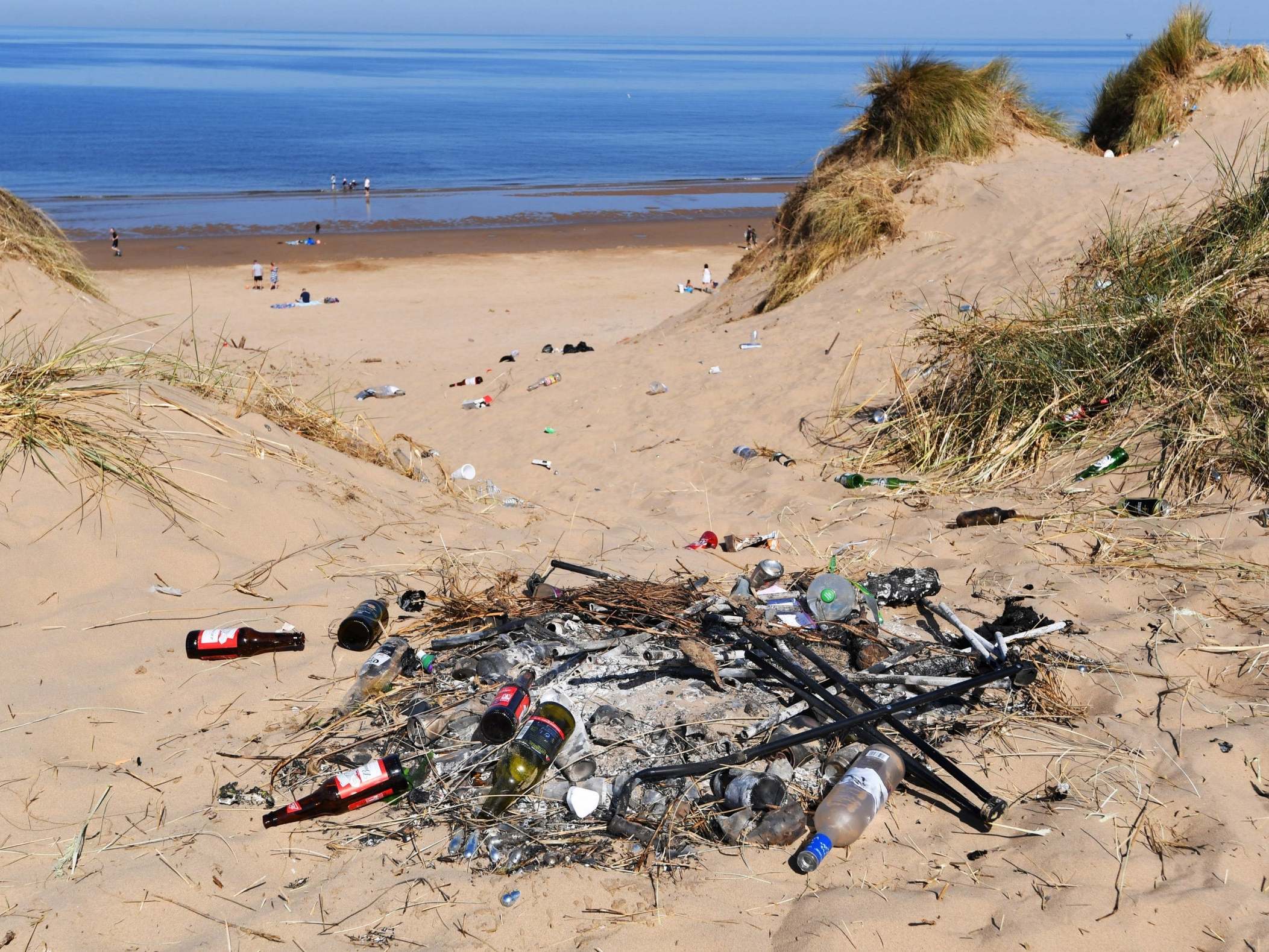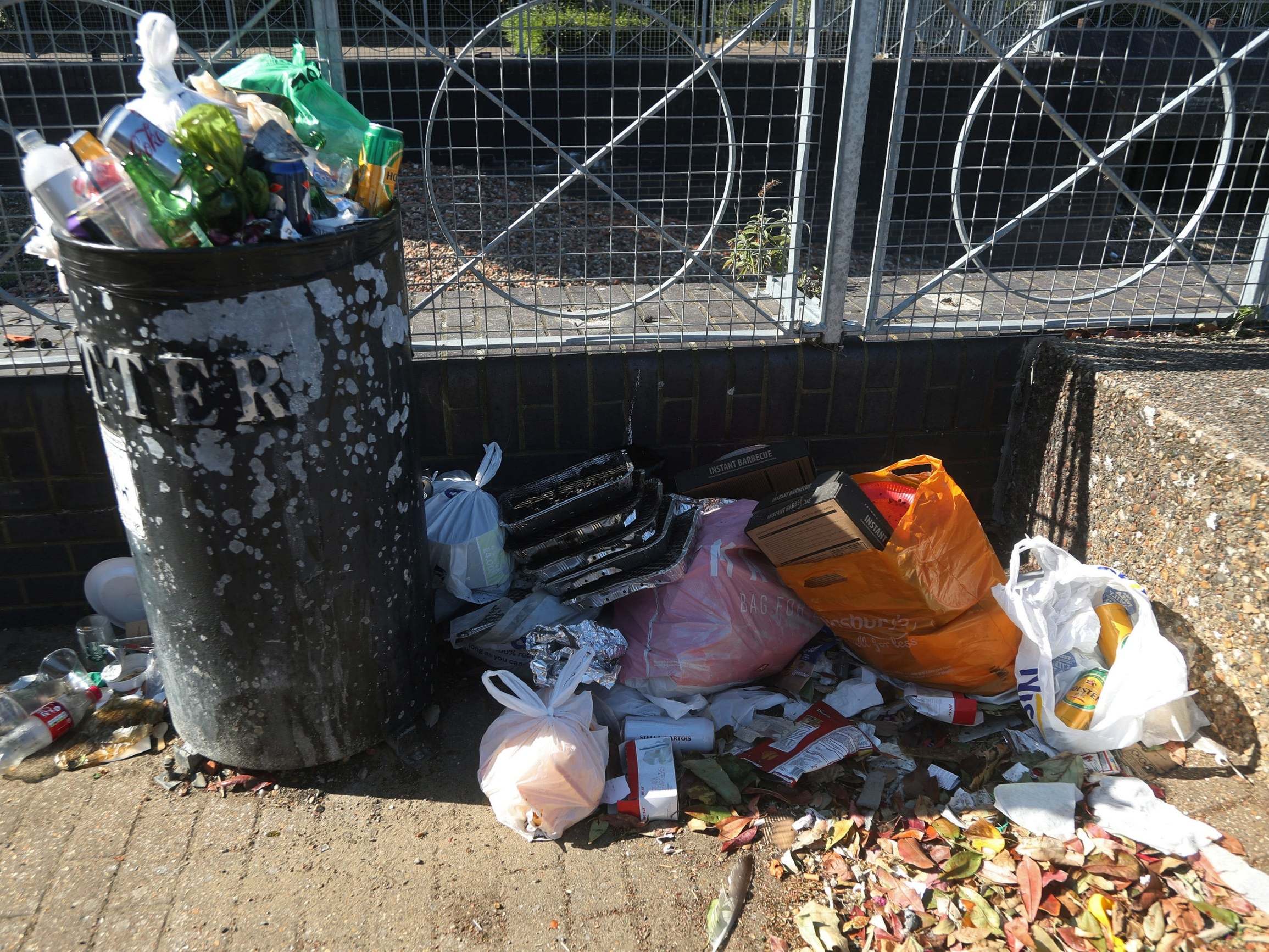Coronavirus: Government issues litter warning after Covid-19 link
Concerns raised after heaps of rubbish were left strewn across Britain’s beaches last month

Your support helps us to tell the story
From reproductive rights to climate change to Big Tech, The Independent is on the ground when the story is developing. Whether it's investigating the financials of Elon Musk's pro-Trump PAC or producing our latest documentary, 'The A Word', which shines a light on the American women fighting for reproductive rights, we know how important it is to parse out the facts from the messaging.
At such a critical moment in US history, we need reporters on the ground. Your donation allows us to keep sending journalists to speak to both sides of the story.
The Independent is trusted by Americans across the entire political spectrum. And unlike many other quality news outlets, we choose not to lock Americans out of our reporting and analysis with paywalls. We believe quality journalism should be available to everyone, paid for by those who can afford it.
Your support makes all the difference.Downing Street has warned people to pick up their litter to stop the spread of coronavirus.
Heaps of rubbish were left strewn across Britain’s beaches as people defied lockdown warnings to flock to beauty spots last month.
Piles of rubbish including empty beer bottles, disposable barbecues and laughing gas canisters were pictured dumped on parts of the country’s coastline.
The government is now urging people to either put their rubbish in a bin or take it home as litter can spread Covid-19.
An image of a pile of litter was posted on the official Downing Street social media accounts with the warning: “Don’t eat and drop. Dispose of your litter. It isn’t difficult.”
The government warned: “Litter can spread the virus. Put it in the bin or take it home with you. Keep your community clean and safe.”
Public Health England (PHE) advice states Covid-19 is mainly passed between people through respiratory droplets transmitted by coughing and sneezing and through contact with contaminated surfaces.
The government agency has previously said the length of time a respiratory virus can survive depends on a range of factors, including the type of surface it is on, and whether it has been exposed to sunlight and cleaning products.
Under most circumstances, PHE says, the amount of infectious virus on any contaminated surfaces is likely to have decreased significantly by 24 hours, and even more so after a further 48 hours.
However, the website Germ Defence, run by experts from Southampton, Bath and Bristol universities, say it can take up to 72 hours for coronavirus to die on hard surfaces such as cardboard, plastic and metal.
They advise putting any deliveries received during the pandemic in a spare cupboard for three days, or as long as possible, before using them.
Littering, including food waste, cigarette butts or chewing gum, is a criminal offence in the UK and anyone caught in the act could face an on-the-spot fine.

Volunteers have been out helping clear up mess left behind by beach-goers during lockdown, including at Durdle Door, in Dorset, where one group filled more than 30 bin bags with rubbish during the heatwave last month.
The Department for Environment, Food and Rural Affairs (Defra) advises any litter picking should be done with “the appropriate safety equipment, including thick gloves, litter-pickers and heavy-duty bags”.
It added: “In the event that littered face coverings or PPE have been collected while litter picking, then these should be handled with care and disposed of in a residual ‘black bag’ bin. They must not be recycled.”
Join our commenting forum
Join thought-provoking conversations, follow other Independent readers and see their replies
Comments